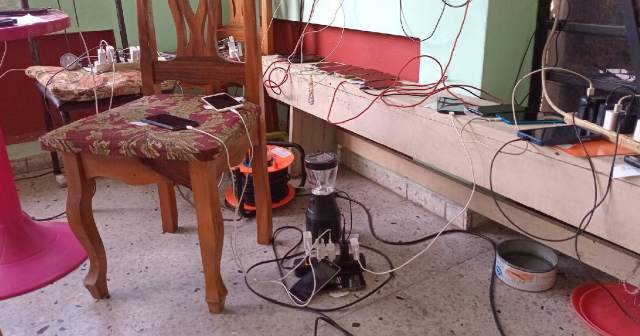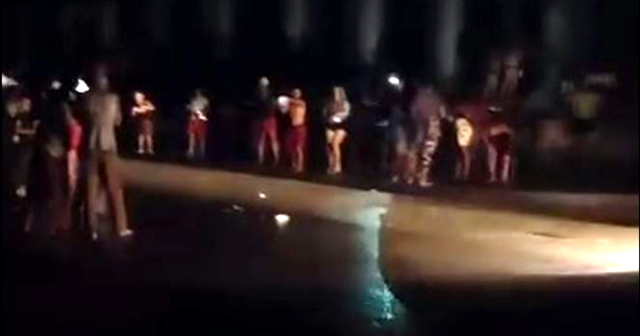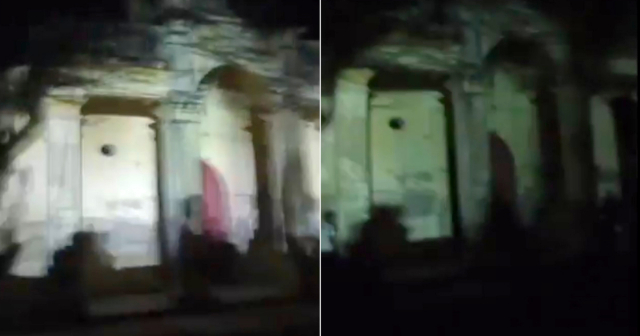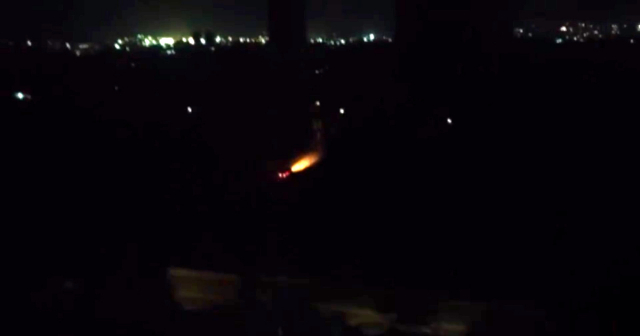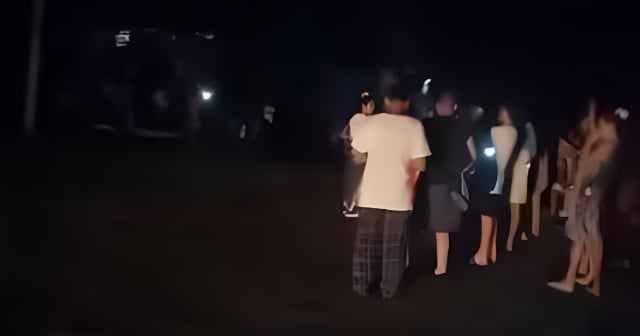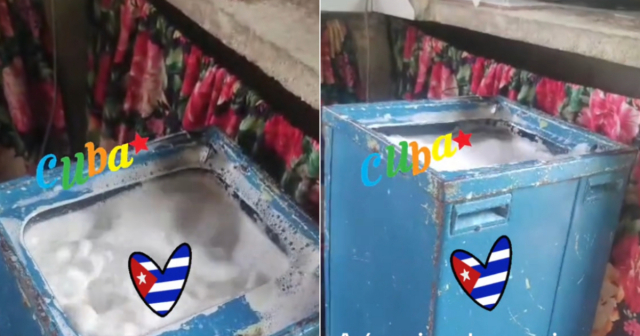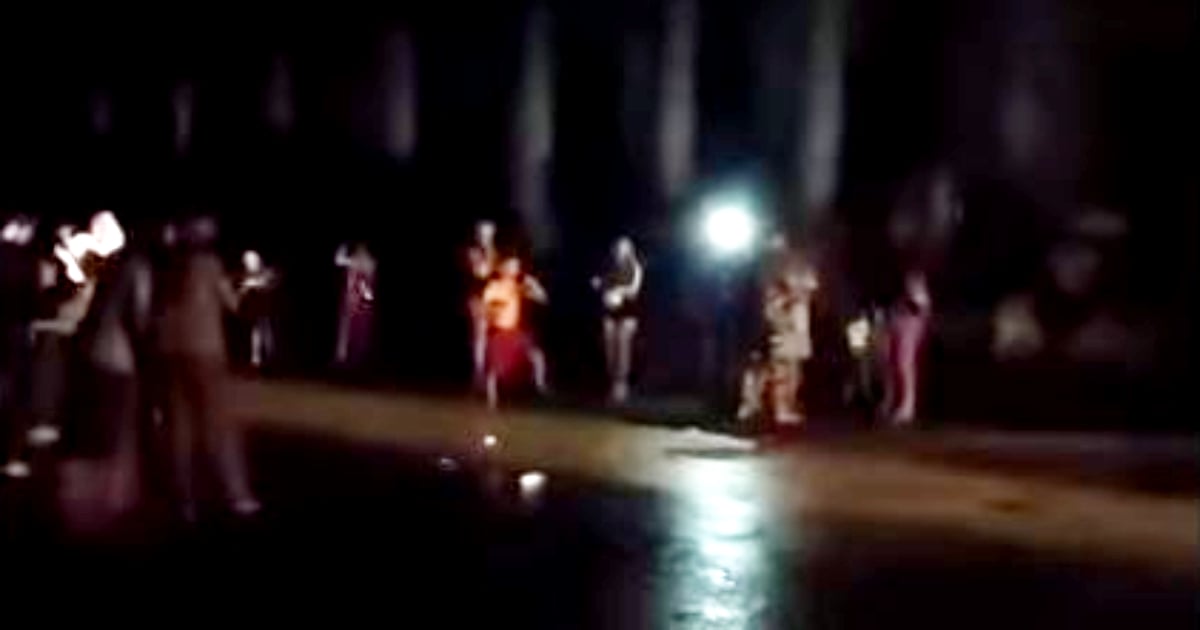
The Attorney General's Office of the Republic of Cuba (FGR) announced that criminal proceedings have been initiated in the provinces of Havana, Mayabeque, and Ciego de Ávila against individuals who participated in protests related to the ongoing blackouts affecting the country.
This confirmation comes amid an energy crisis exacerbated by the recent passage of Hurricane Rafael, which left much of the country without electricity following successive failures of the national electricity system (SEN).
According to the statement from the FGR, the demonstrators are charged with crimes of assault, public disorder, and damage, and have been placed under provisional detention. The repressive body of the Cuban regime emphasized that the incidents included assaults on authorities and inspectors, resulting in injuries and disruptions to public order.
This aspect could not be confirmed in the recent images of protests circulating on social media, where, apart from shouts and pot-banging, the behavior of the demonstrators appears peaceful, without expressions of violence.
The context of the protests and the official reactions.
Hurricane Rafael, which struck the island with winds of up to 186 kilometers per hour and torrential rains of 195 millimeters, caused the collapse of the National Electric System (SEN) for three consecutive days.
Although the electrical grid was reconnected after almost 48 hours, the lack of electricity persists in many areas. In Havana, only half of the nearly two million residents currently have access to power, while in the rest of the country, outages continue due to the SEN's inability to generate enough energy to meet demand, a chronic problem that has worsened.
The Cuban government's response to the protests has not been one of conciliation. In previous statements, ruler Miguel Díaz-Canel indicated that the demonstrators were acting under the "guidance of operators of the Cuban counter-revolution from abroad."
"There is all the willingness, all the capacity, and the full deployment and scale of the systems we have organized through the defense councils, the organizations, the party, the government, and the administrations to respond to the population's concerns, as long as it is done in a civilized, organized, and disciplined manner," the leader pointed out at the end of October.
"But we are not going to accept or allow anyone to engage in vandalism or, even less, disrupt the tranquility of our community, and that is a conviction, and that is a principle of our revolution," he added.
Reports of detentions and repression
Human rights organizations such as Cubalex, based in the United States, have reported at least eight arbitrary detentions in Encrucijada, Villa Clara, related to protests over power outages.
Additionally, the NGO Justicia 11J reported that at least three protests took place in Havana on Friday night, marking the second consecutive day of demonstrations in the capital.
These protests, marked by loud banging on pots and pans and peaceful marches, reflect the widespread discontent among the population facing blackouts and daily hardships.
The FGR emphasized in its statement the importance of maintaining order, discipline, and respect for the authorities, and reminded citizens of the need to adhere to "socialist legality."
However, repression and detentions have raised new concerns about human rights in Cuba, a country governed by a totalitarian communist regime that suppresses those who denounce or criticize it for its human rights violations and lack of civic and political freedoms, such as freedom of expression and assembly.
Impact on Daily Life and Community Response
The energy crisis, worsened by the SEN's inability to produce the necessary electricity, has forced Cubans to endure days without power, impacting everything from food storage to access to basic services.
Despite the recovery messages that the regime promotes through its propaganda, Cubans continue to endure long hours of darkness and an atmosphere of uncertainty that fuels social discontent.
The detentions in Encrucijada have sparked a feeling of frustration among the families and neighbors of those arrested, who advocate for the right to protest against a situation they deem unsustainable.
This climate of tension highlights the challenges that Cuba faces not only in terms of its economy and infrastructure but also regarding civil rights and public freedoms.
The words of the FGR, which emphasize the "proper observance of social coexistence norms," contrast sharply with the criticisms from the international community and Cuban civil society, which call for a more empathetic and respectful response to citizens' rights.
"The only thing that contrasts with this determination for unity among our people, with this collective effort to overcome adversities, are a few individuals, a small number of people, mostly in a state of intoxication, who have behaved in a ... um ... indecent manner," said Díaz-Canel during an appearance at the end of October before the National Defense Council.
The regime's strategy to discredit those who protest and demand their rights and freedoms is clear and serves a purpose: to signal that these individuals “are not part of the Cuban people” (divide), and to make it clear that the so-called “revolution” will not hesitate to suppress their actions (intimidate).
The statement from the FGR this Saturday confirms that the repressive bodies involved in this strategy are already at work.
What do you think?
COMMENTFiled under:

